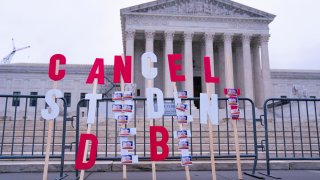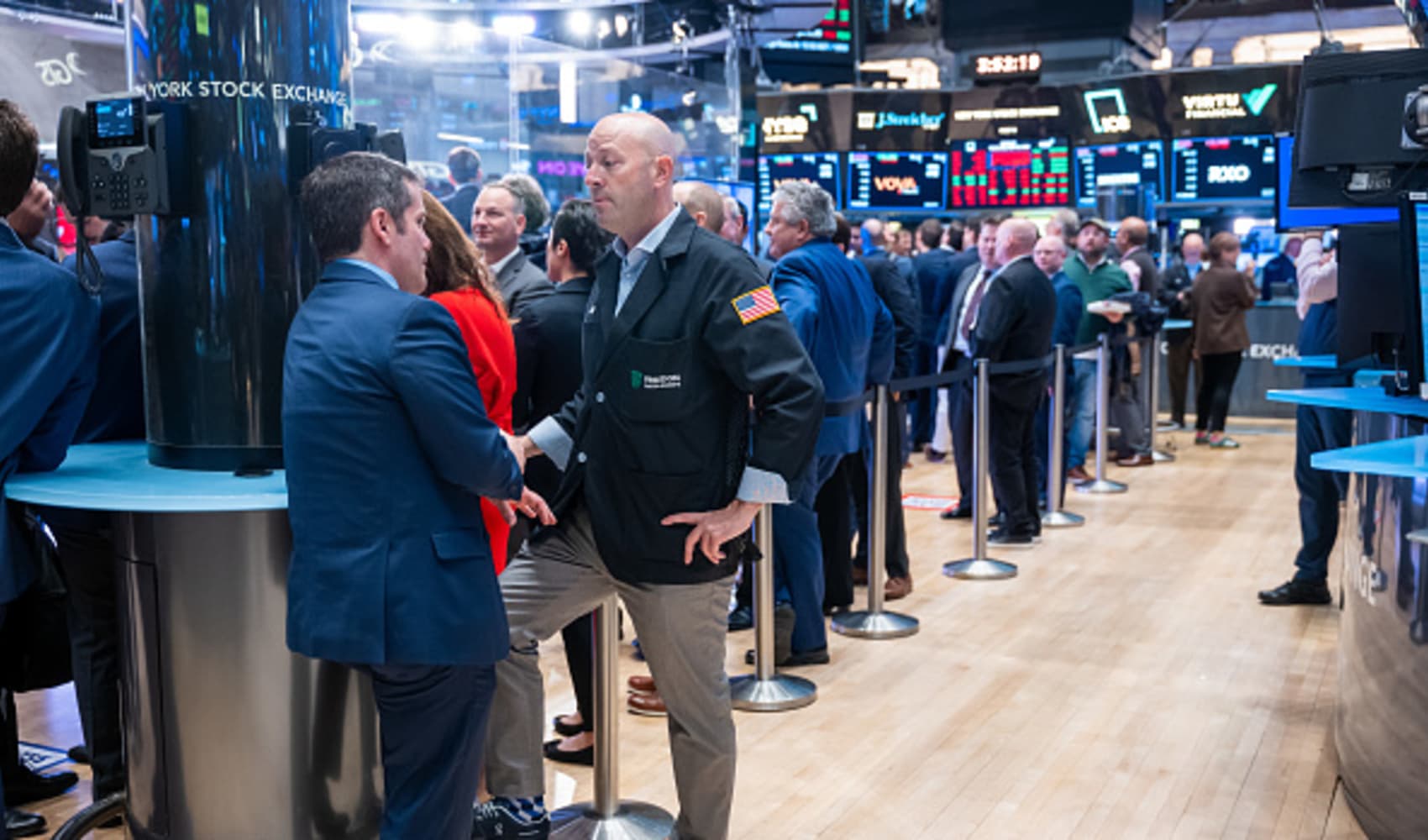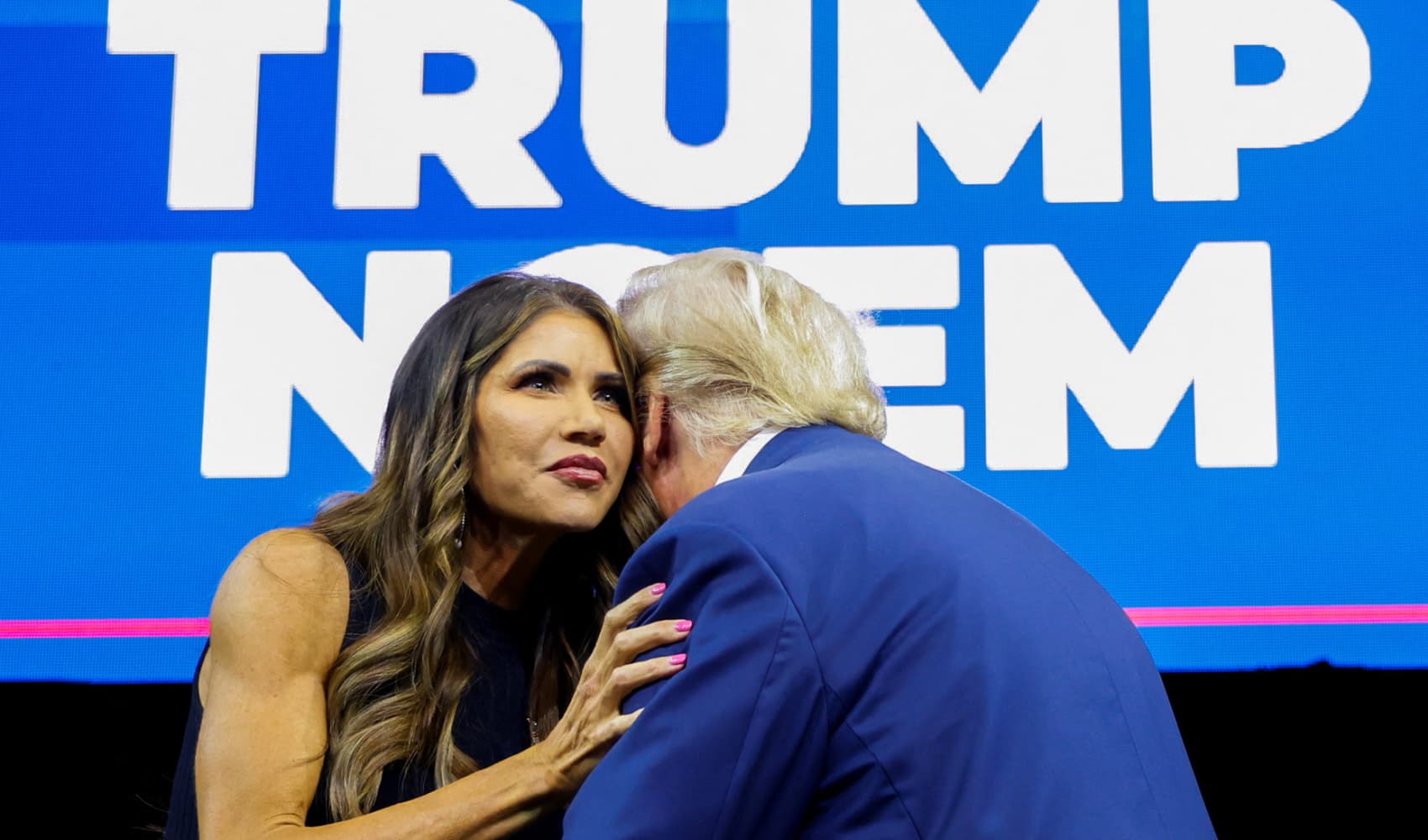
- The Supreme Court is expected to rule by the end of June on President Joe Biden's $400 billion student loan forgiveness plan.
- Two lawsuits have challenged the legality of the plan, which was not approved by Congress, and would be among the most expensive executive actions in U.S. history.
Within two weeks, the Supreme Court justices should break for their summer recess. And yet there's been no ruling on President Joe Biden's sweeping student loan forgiveness plan.
For many borrowers, it's been an anxious wait.
"Waiting to hear whether or not it will pass is nerve-wracking at best, debilitating at worst," said Richelle Brooks, 35, a single mother in Los Angeles whose monthly student loan payment was as high as $1,200 at one point. "We're all staying tied to our phones each week."
We're making it easier for you to find stories that matter with our new newsletter — The 4Front. Sign up here and get news that is important for you to your inbox.
More from Personal Finance:
Average credit card interest rate is a record 20.69%
Mortgage points may help homebuyers lower monthly costs
Firms bombard small businesses with ads for Covid tax credit
However, legal experts said it makes sense that this ruling is taking time.
"Given all the moving pieces — and given the case's significance — I'm not surprised to see it come so late in the term," said Steven Schwinn, a law professor at the University of Illinois Chicago.
Money Report
Northeastern University law professor Dan Urman agreed. "The more complicated, difficult cases tend to take longer," he said.
Justices considering 'several thorny issues'
There's no precedent for the kind of sweeping debt forgiveness the Biden administration is trying to carry out. And at an estimated cost of $400 billion, the policy would be among the most expensive executive actions in U.S. history.
As a result, Biden's plan "raises several thorny issues," Schwinn said.
"This case is a little tricky — trickier than we might think at first glance," he said.
There is the core issue of whether or not Biden has the power to forgive so much student debt without authorization from Congress.
Administration officials insist that he's acting within the law, pointing out that the Heroes Act of 2003 grants the U.S. secretary of education the authority to make changes to the federal student loan system during national emergencies. The country was operating under an emergency declaration due to Covid-19 when the president rolled out his plan to cancel up to $20,000 in debt for borrowers.
Yet the plaintiffs trying to block forgiveness say the president is incorrectly using the law, which they argue allows only for narrow applications of relief and not the kind of across-the-board loan cancellation the president wants to deliver. Around 37 million people would benefit from Biden's program.
Plaintiffs left some justices unconvinced
The justices also have to consider if the plaintiffs against the Biden administration have successfully shown they'd be harmed by the president's policy, which is typically a requirement to gain the right to sue. The need to prove so-called legal standing is designed to prevent people from suing against different policies and programs simply because they disagree with them.
Two legal challenges against the program made it to the high court: one brought by six GOP-led states — Arkansas, Iowa, Kansas, Missouri, Nebraska and South Carolina — and another backed by the Job Creators Network Foundation, a conservative advocacy organization.
The states argue that a reduction in loan business for the companies in their states that service federal student loans would hurt their bottom line. Meanwhile, the complaint by the Job Creators Network Foundation centers on two student loan borrowers who would be partially or fully excluded from the aid.
Before the justices considered these challenges during oral arguments at the end of February, most legal experts expected the conservative justices to side with the plaintiffs.
However, several pundits changed their tune afterward.
Conservative justice Amy Coney Barrett seemed especially unconvinced that the plaintiffs proved injury, said Jed Shugerman, a law professor at Fordham University and Boston University.
"Barrett was vocally and deeply uncomfortable about ruling that any of the plaintiffs had standing," Shugerman said.
At least one or two other conservative justices also seemed conflicted over the question of standing, Shugerman said, adding more reason to why the deliberation is taking time.
Decision still expected before end of term
In high-profile cases that attract a lot of political attention such as Biden's student loan forgiveness plan, the justices also tend to write lengthier decisions that try to show they arrived at their conclusion through legal rather than partisan reasoning, Shugerman said. And longer opinions take more time to write.
Still, anxious borrowers can take some relief in knowing the high court is most likely to announce their ruling by early July, Schwinn said: "It'll almost surely come before the end of the term."
Shugerman said the same: "The justices preserve July and August for getting out of town."
Still, there is a small possibility that the court wants to hear another round of oral arguments before it issues its decision, he added. In that case, borrowers would have to wait until October, when the justices begin their next session, or later for their answer.






